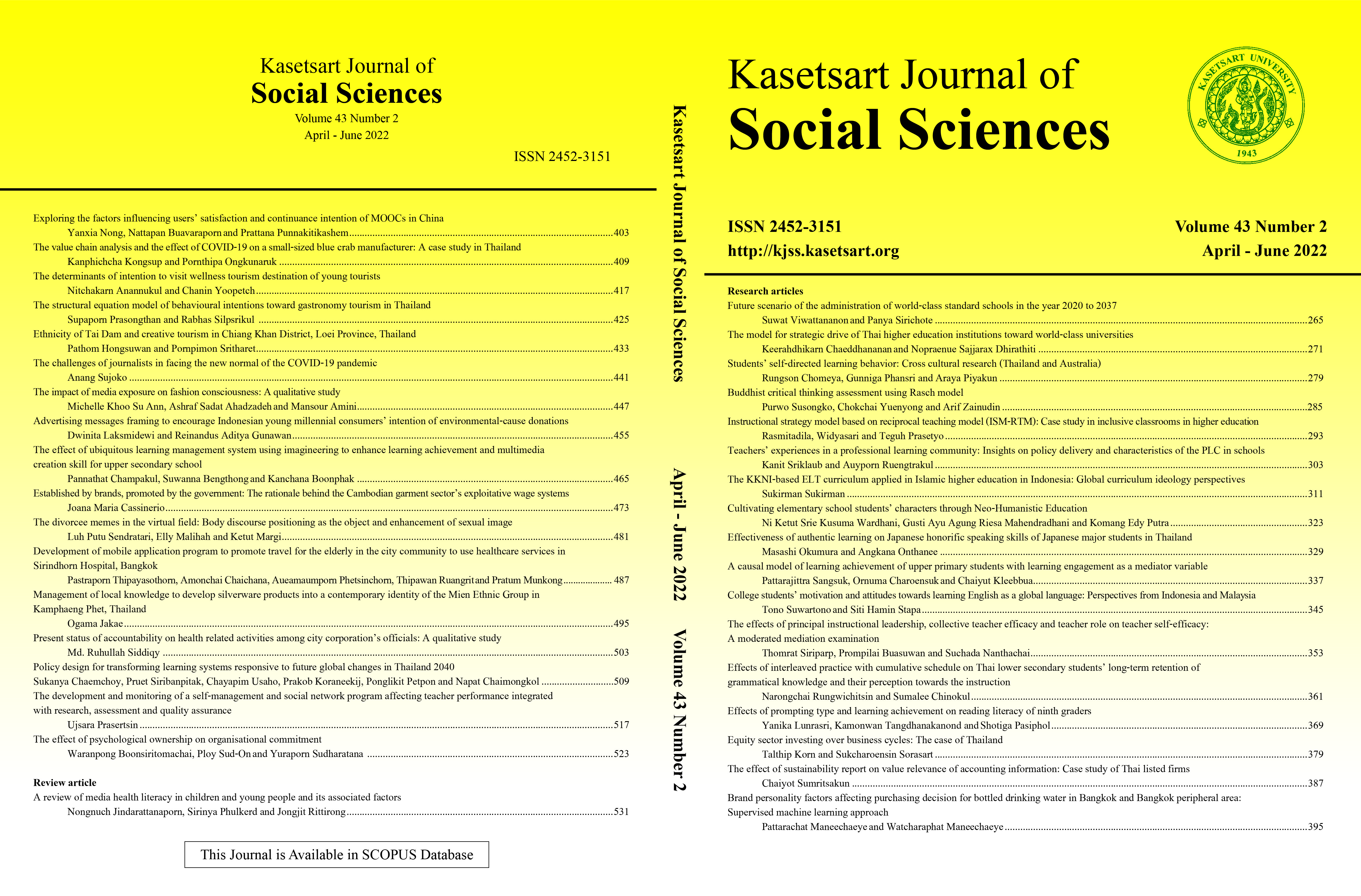The structural equation model of behavioural intentions toward gastronomy tourism in Thailand
คำสำคัญ:
behavioural intentions, destination food image, gastronomy tourism, structural equation model, Thailandบทคัดย่อ
The objectives of this study were to identify the underlying dimensions of Thailand food destination image and to investigate the causal relationships among food destination image, memorable gastronomy experience and behavioural intentions toward gastronomy tourism in Thailand. A quantitative approach was applied to determine the behavioural intentions model by collecting 400 online questionnaires from international tourists. The findings suggest that two underline food destination images are food identity image and food reputation image. The result of the SEM analysis revealed a good fit with the empirical data (χ2/df = 1.226, P =.067, AGFI =.948, CFI = 0.995, RMSEA = 0.027). Furthermore, food identity image and food reputation image had a positive effect on a memorable gastronomy experience with effect coefficients of 0.69, 0.23, respectively. Memorable gastronomy experience was significant in predicting behavioural intentions with effect coefficients of 0.85. From the study, marketing communication campaigns should be focused on the reasonable price of food, street market and uniqueness of Thai food through a variety of communication platforms.
ดาวน์โหลด
เผยแพร่แล้ว
รูปแบบการอ้างอิง
ฉบับ
ประเภทบทความ
สัญญาอนุญาต

อนุญาตภายใต้เงื่อนไข Creative Commons Attribution-NonCommercial-NoDerivatives 4.0 International License.
This is an open access article under the CC BY-NC-ND license http://creativecommons.org/licenses/by-nc-nd/4.0/










